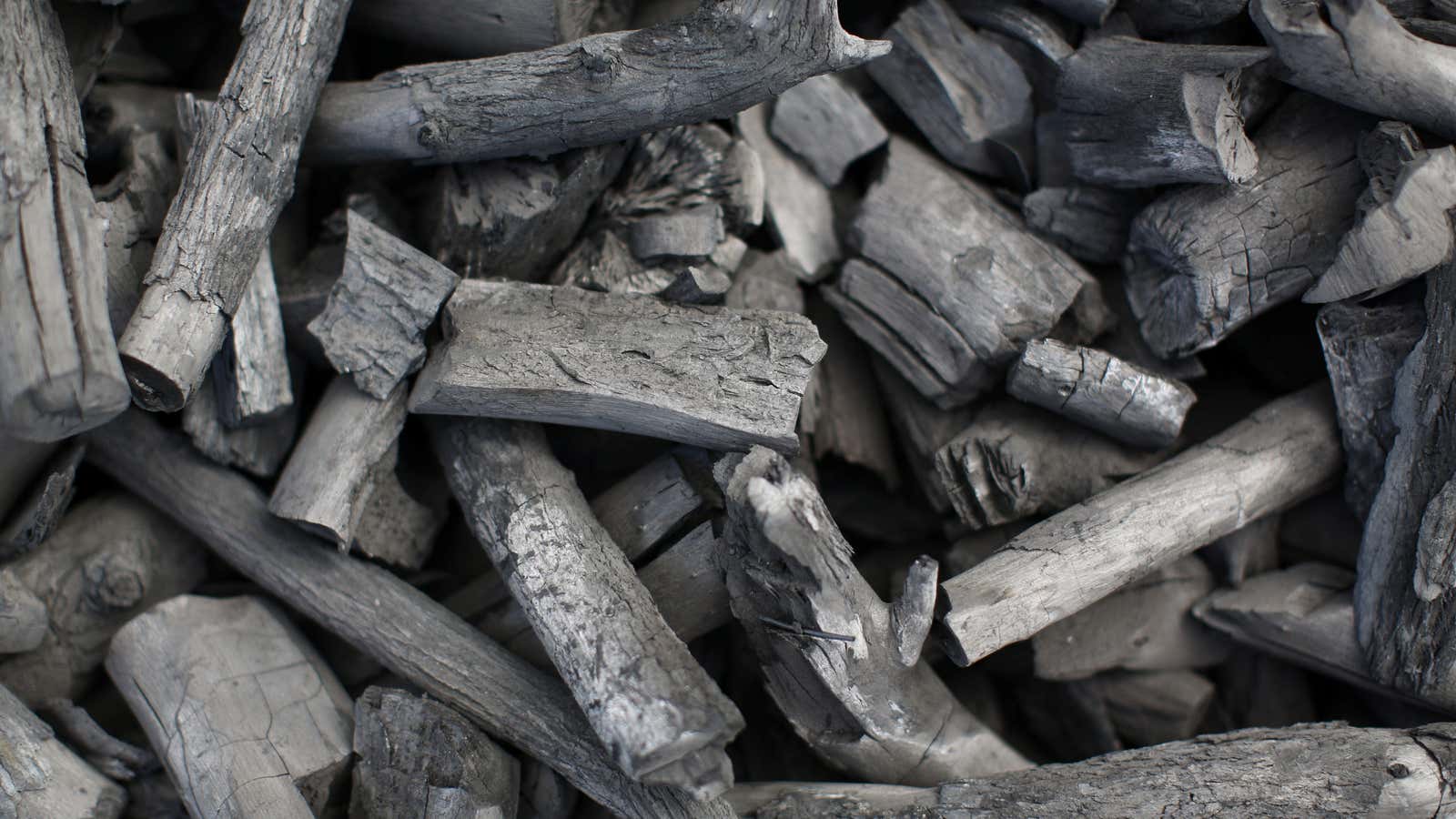In recent years, toothpastes that contain activated charcoal have become commonplace in drugstores. Their labels reassure potential customers that they’re “eco-friendly,” “herbal,” “natural,” or “pure.” All of these words, which are meaningless in a scientific context, help justify their cost of up to $25.45 (£20) for a single tube.
However, the scientific literature on charcoal toothpastes concludes that they’re likely worse for oral hygiene—and definitely not worth the sticker price.
Earlier this month in the British Dental Journal, researchers from the University of Manchester Dental School and King’s College London published a review (paywall) of charcoal toothpastes’ efficacy. Their work follows a 2017 review of charcoal toothpastes by the American Dental Association, which called for (paywall) more scientific studies on the efficacy of such products.
The authors of this month’s paper find that there are too many probable risks from charcoal toothpaste to justify using it. Activated charcoal, which is charcoal made into a porous powder with high-temperature burning, is advertised as a superior stain remover. Although the particulates of activated charcoal may be sharper—and therefore a better stain removal—than typical toothpaste, this abrasiveness can actually harm teeth and surrounding gums. They can also get stuck in fillings or other tiny crevices in the mouth, which is often why mouths brushed with charcoal toothpaste are a black or grey color if not properly rinsed.
Activated charcoal also tends to be advertised as an absorbing compound. In fact, it’s sometimes used as a legitimate antidote to poison, Gizmodo points out, because it can stop certain dangerous compounds from reaching the bloodstream, if ingested quickly enough. However, this absorption doesn’t benefit our teeth. There’s no scientific evidence that charcoal can safely absorb disease-causing microbes from our mouths. And it may make other useful ingredients in toothpaste less effective. By binding to other oils, flavorings, or even fluoride—a chemical that protects enamel—activated charcoal could block these ingredients from actually working on teeth.
Additionally, the 2017 review from the American Dental Association found that 92% of charcoal toothpastes didn’t even contain fluoride. This is likely because of a non-scientific anti-fluoride movement that began in the 1950s (paywall). Those against fluoride argue that concentrations above 4 milligrams per liter, a limit set by the US Environmental Protection Agency, fluoride can be dangerous. This is true—but most water supplies contain less than 1 mg per liter. The American Dental Association refers to fluoridated water as “the most effective public health measure for the prevention of dental caries,” or cavities.
The rise of charcoal-activated toothpaste seems to reflect a rise of wellness based on the idea that ancient practices were better than those available to us through large corporations backed by modern science. Activated charcoal was a legitimate toothpaste in ancient Greece, and it still is in some developing countries today. But just because something was used as an ancient remedy doesn’t make it better than modern alternatives.
Consider celery juice, another staple of the wellness movement. Celery is a fine vegetable, and used to be just as popular as kale is today. But from a scientific perspective, its juice simply does not have the almost magical medicinal powers its questionable promotors claim that it does.
Craig Dubitsky, the founder of Hello, a company that sells activated-charcoal toothpaste, told Quartz in an email that his firm has tested its toothpaste’s abrasiveness, and that it is safe for everyday use. He also said it sells both fluoridated and fluoride-free toothpaste because it believes in a customer’s right to choose.
This is true, of course—we all have the right to choose which products we put in our bodies. However, as scientists investigate this new trend of activated charcoal in toothpaste, it’s becoming increasingly clear that it may not actually be the best choice for oral health.
